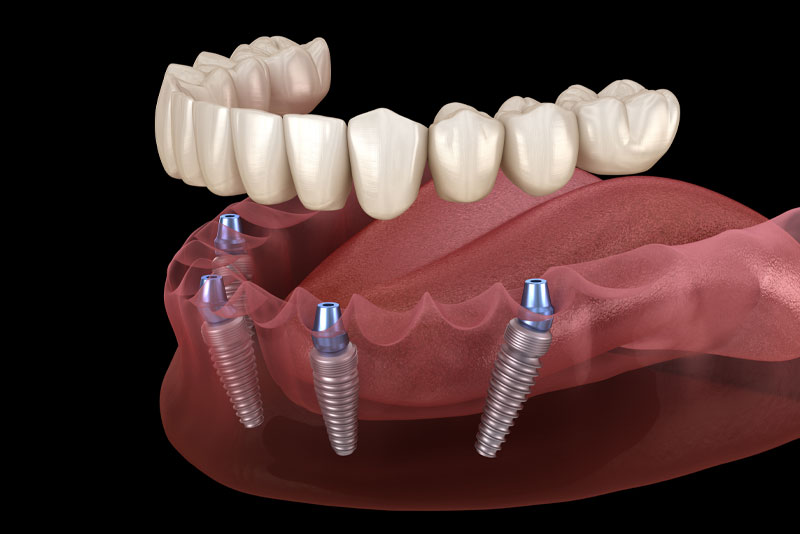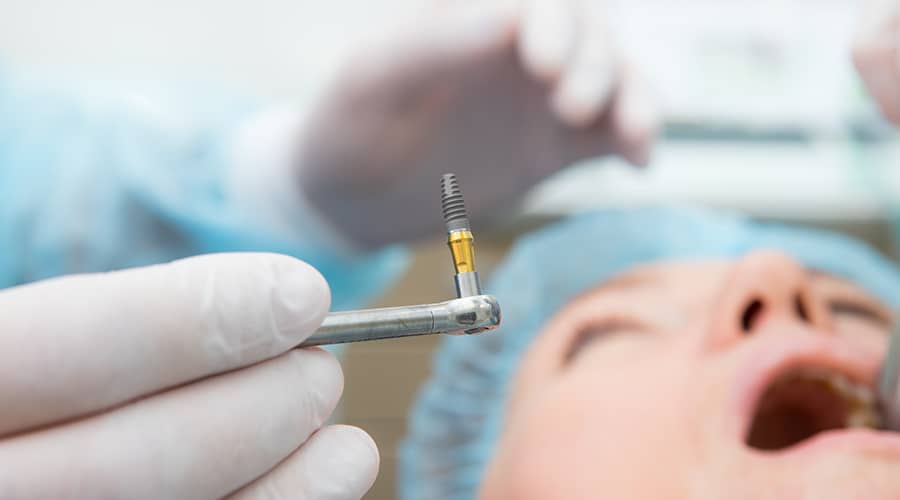
How to Speed Up Recovery After Dental Implant Surgery
Dental implant surgery is widely used for tooth replacement and offers a long-term and attractive solution. Surgery can be the starting point for achieving oral health, but healing is just as crucial for successful implantation. A smooth recovery minimises risks and speeds up healing, allowing you to enjoy your smile earlier.
This detailed guide will look at the best ways to speed up recovery following dental implants Perth surgery.

Understanding the Dental Implant Recovery Process
Individual differences in recovery time after dental implant surgery include overall health, oral hygiene, operation complexity, and adherence to postoperative instructions. Generally, the healing process goes through the following phases:
- Initial Healing (First 24-72 Hours): Swelling, bleeding, and pain are expected. The body starts forming blood clots to start healing.
- Osseointegration (2–6 Months): The implant becomes fixed in the jawbone, providing a firm foundation for the artificial tooth.
- Soft Tissue Healing (1-2 Weeks): The tissue in the gums heals and becomes less sensitive.
- Final Restoration (After Complete Healing): The dentist will place a prosthetic tooth or crown on the recovered implant.
Following proper aftercare can significantly speed up recovery and reduce discomfort.
Tips to Speed Up Recovery After Dental Implant Surgery
1. Follow Post-Operative Instructions Diligently
Your dentist Ellenbrook will provide specific medication, diet, and oral care instructions. The first step in ensuring a quick recovery is strictly adhering to these guidelines.
- Take prescribed antibiotics and pain relievers as directed.
- Avoid disturbing the surgical site with fingers or tongue.
- Attend all follow-up appointments.
2. Control Swelling and Pain Effectively
Swelling and mild pain are natural responses to surgery. To manage these symptoms effectively:
- Apply Ice Packs: For the first 24 hours, apply an ice pack to the cheek around the surgery site for 15-20 minutes.
- Elevate Your Head: Sleeping with your head elevated helps to minimise swelling.
- Use Pain Relievers: Over-the-counter pain relievers, such as ibuprofen or acetaminophen, can help alleviate discomfort.
3. Stay Hydrated and Avoid Alcohol
Drinking plenty of water helps flush toxins and hydrate tissues, promoting quicker healing. However, avoid alcohol and caffeine for at least a week, as they can interfere with blood clotting and delay recovery.
4. Avoid Smoking and Tobacco Products
Smoking is the major risk factor for implant failure. Nicotine causes blood vessels to constrict, decreasing the body’s healing potential and raising the risk of infection. If possible, quit smoking pre- and post-operatively to enhance recovery and increase implant success.
5. Practice Excellent Oral Hygiene
Maintaining a clean mouth prevents infections and accelerates healing.
- Gentle Brushing: Use a soft-bristled toothbrush to clean teeth while avoiding the surgical area.
- Saltwater Rinse: 24 hours after surgery, rinse with a warm saltwater solution (1/2 teaspoon salt in a cup of water) to reduce bacteria.
- Avoid Mouthwash with Alcohol: These can cause irritation and slow healing.
6. Get Plenty of Rest
Rest is crucial for the body to repair itself. Avoid strenuous activities for at least 48–72 hours post-surgery. Excessive movement or heavy lifting can increase swelling and disrupt blood clot formation.
7. Be Mindful of Your Chewing Habits
To protect the implant site:
- Chew on the opposite side of the mouth.
- Avoid using a straw for the first few days to prevent dislodging the blood clot.
- Refrain from grinding or clenching your teeth (consider using a night guard if necessary).
8. Take Supplements That Aid Healing
Specific vitamins and minerals can support faster healing.
- Vitamin C (citrous fruits, bell peppers) helps tissue repair.
- Vitamin D (sun exposure, dairy products) supports bone healing.
- Calcium (milk, almonds, leafy greens) strengthens the jawbone.
- Zinc (Pumpkin seeds, nuts) boosts immune function and tissue healing.
9. Watch for Signs of Complications
While most people recover smoothly, it is essential to monitor for potential complications such as:
- Excessive bleeding beyond the first 24 hours
- Severe pain not relieved by medication
- Pus or foul odour indicating infection
- Implant mobility (loose or shifting implant)
- Persistence swelling after a week
If you experience any of these symptoms, contact your dentist immediately.

The Role of Lifestyle in Recovery
Your lifestyle habits overall can significantly influence the rate of your recovery. Here’s how:
- Stress Management: Too much stress can compromise the immune system. Practice relaxation techniques, such as meditation or deep breathing.
- Quality Sleep: Sleep for 7-9 hours at night to enable your body to heal effectively.
- Exercise (Once Healing Starts): Light exercise, like walking, can enhance circulation, but do not engage in strenuous activities until your dentist clears you.
Conclusion
Dental implant healing requires patience, care, and following postoperative orders. By following these steps—taking good care of your mouth, eating well, staying hydrated with water, avoiding harmful habits, and listening to your body’s warning signs—you can heal much faster and enjoy long-term success for your dental implant.
Do not hesitate to contact your dentist if you experience problems during recuperation. If you follow the proper procedures, you may quickly reap the benefits of your dental implant with a confident, healthy smile!




